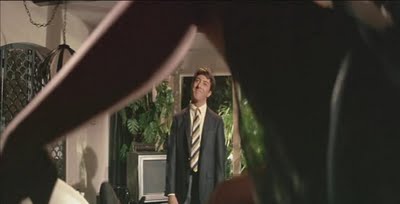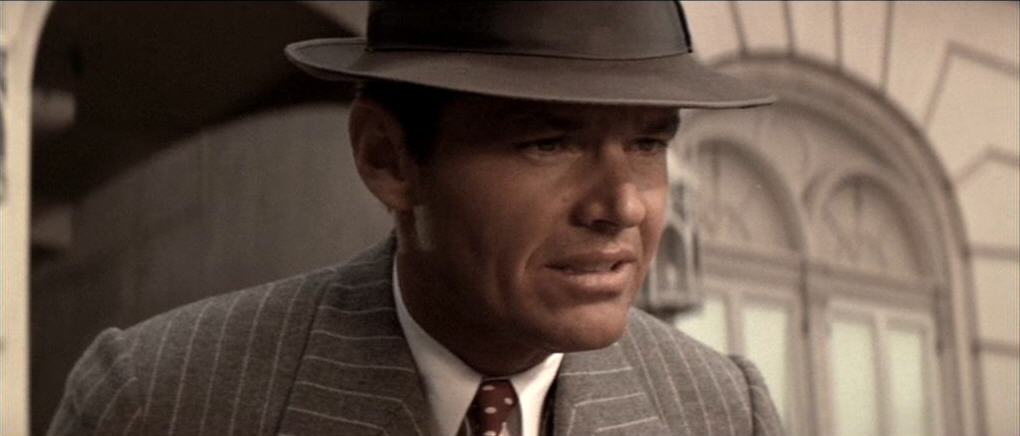5 Classic Movies You Need to See ASAP
I’ve been tossing around a few ideas recently about how to talk about classic movies here on Professionally Incoherent. While I want the blog to be as up-to-date as possible on new stories, I’d also like to share my reaction to the older movies I’ve been catching up on.
Starting next week, I’ll be posting occasional “classic movie reviews”, as a way of calling your attention to some old films that I think you might like to check out. As an introduction to this series, I’ve prepared a list of 5 movies that I think you should seek out as soon as possible – not only will you enjoy them, but it will make you a more knowledgeable moviegoer. If the recent trailer for the Battleship movie is any indication, I think we can all use a bit of old-school movie education!
Before I start, let me explain how I’m listing the movies below. Firstly, they’re not in any particular order, because trying to decide which ones are better than others is kind of pointless – they’re all awesome for different reasons. Secondly, I’m only including movies I’ve seen. There are plenty of other “great” old films that won’t appear on this list, because I haven’t watched them yet. With that out of the way, on to the list!
Casablanca

My first selection is Michael Curtiz’s 1942 film Casablanca. You’ve probably heard or seen it included in lots of “greatest movie” lists, but I think many people of my generation (and maybe even the one before that) don’t really understand why.
It tells the story of Rick Blaine (Humphrey Bogart), an American ex-pat running a bar in Casablanca, Morocco in the early days of World War II. Blaine runs into an ex-lover of his, Ilsa Lund (Ingrid Bergman) at his bar, an encounter that dredges up memories of their painful break-up in Paris several years before. Ilsa wants Rick to help smuggle her husband, a Czech resistance leader, out of the country to safety in the United States. Rick must then decide whether to forgive Ilsa’s transgressions in Paris or to let Victor be captured by the Nazis.
This movie has been sitting in the top 5 of “greatest movie” lists for a very long time. There has been so much written about this film that it almost seems redundant to mention Bogart and Bergman’s passionate performances or the now-iconic script. Nevertheless, see this movie, even if a black-and-white 40s drama doesn’t seem like your style.
The Graduate
Your next assignment is Mike Nichols’ The Graduate, released in 1967. Like Casablanca, this movie has been considered a classic for so long, many people have forgotten how it earned that status.
Dustin Hoffman stars as Ben Braddock, a jaded college student trying to figure out what to do with his life. His parents and parents’ friends all seem to have his future career decided for him, but Ben isn’t interested in any of their plans. He is introduced to the sultry Mrs. Robinson (Anne Bancroft) at a party thrown by his parents, and this spirals into a love affair between Ben and the older woman. Unfortunately, despite Ben’s efforts, their relationship lacks any real emotion. Ben begins to fall in love with Mrs. Robinson’s daughter – an event that forces Ben to decide what kind of man he will become.
That summary might sound a bit schmaltzy, but when rendered on the screen, you become invested in Ben’s happiness – you want to see the character do well. The Graduate was Hoffman’s breakout role, and it also helped launch the career of Simon & Garfunkel, who wrote and performed the score. The Graduate is a thoughtful, heartfelt movie that also happens to include some of the best film editing I’ve ever seen - I might devote a future blog post to some of the scene transitions alone.
The Hustler
This one might seem a bit more obscure, but that shouldn’t mask its quality. The Hustler was released in 1961, and stars Paul Newman as slick pool shark “Fast Eddie” Felson. Eddie wants to beat the reigning pool champion Minnesota Fats in a marathon game of straight pool, and hopes to win $10,000 or more in a single night. Felson is arrogant and overconfident, and before he can beat Fats he must learn to ditch his ego and gain some “character”. On top of that, Eddie gets tangled up with an unstable woman named Sarah, whose personal problems could bring Eddie’s training to a halt.
The Hustler asks some penetrating questions about humanity and the nature of winning and losing, combining its examinations with fantastic character work by Newman and his supporting cast (including Jackie Gleason, George C. Scott and Piper Laurie). There’s also a number of very quotable lines (My favourite was “Play pool, Fast Eddie!”). The film felt so alive that I didn’t notice the film is shot in black and white – for me, a surefire indication of a great movie.
The Good, the Bad and the Ugly
I’ll bet that you’ve probably heard of Sergio Leone’s famous Spaghetti Western but have never got around to finally seeing it. I decided to take the DVD out of my local library about a year ago, and I was blown away by the movie. It didn’t even matter that I hadn’t seen the first two films in Leone’s “Dollars” trilogy, A Fistful of Dollars and For a Few Dollars More – I was sucked in by the almost never-ending desert landscapes and the gritty lead performance by Clint Eastwood.
The story finds Eastwood’s character, the Man With No Name, on the trail of a fortune in Civil War gold, hidden somewhere in the wilderness. To find the buried treasure, he alternately teams up with two other gunslingers: Colonel “Angel Eyes” Mortimer and a man known only as Tuco. The three men then embark on a series of personal betrayals and shoot-outs in their efforts to become one of the richest men in the West.
I’d recommend seeing The Good, the Bad and the Ugly either by itself or with the other two “Dollars” movies to fully appreciate modern Westerns like Unforgiven, 3:10 to Yuma or even Cowboys & Aliens. It’s definitely an essential part of a full film “education”.
Chinatown
I just saw Chinatown for the first time several days ago. It’s a 1974 film noir helmed by the controversial French/Polish director Roman Polanski, starring Jack Nicholson as a former cop turned private eye in 1930s Los Angeles. Again, I get the sense that this movie has slipped under current viewers’ collective radar, and I think it deserves a bit more recognition.
Nicholson’s character, Jake Gittes, is investigating a routine adultery case for a woman when he stumbles across a much bigger mystery, connected to the water shortage in Los Angeles at the time. As a former cop, Gittes feels compelled to sort out what is going on, even if there is little chance of getting any justice for the people concerned. It fact, it’s this issue that flows through the movie: the question of whether justice can really be achieved for every crime.
Gittes’ determination is an admirable quality in a private eye character, and it compels the viewer to root for him early on. While the ending of Chinatown may not as satisfying for either the Gittes character or the audience, the quality of the writing certainly deserves the Academy Award for Best Original Screenplay it won in 1975 (It was actually nominated for 10 more, but lost out to The Godfather: Part II in almost every category).
-
Have I inspired you to seek out any of these titles? If you’ve already seen some of them, what did you think? Would you consider them to be “essential” film viewing, or are they a bit over-hyped? Let me know in the comments below! If you liked this post, follow the links below to check out some of my related articles on film:
"Underrated" Films: What Are They, Really?
Why the word "film" doesn't have to be pretentious
-



